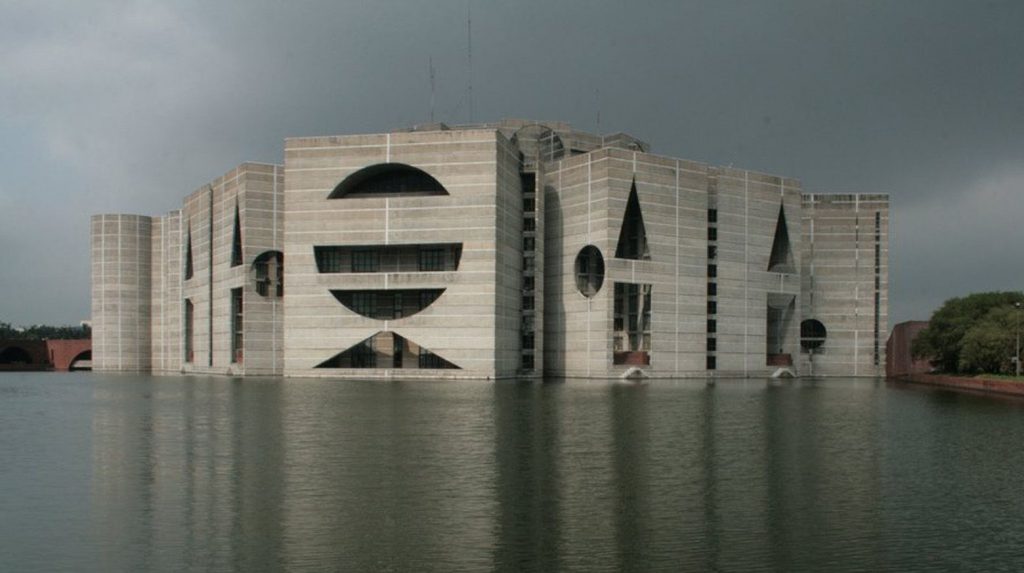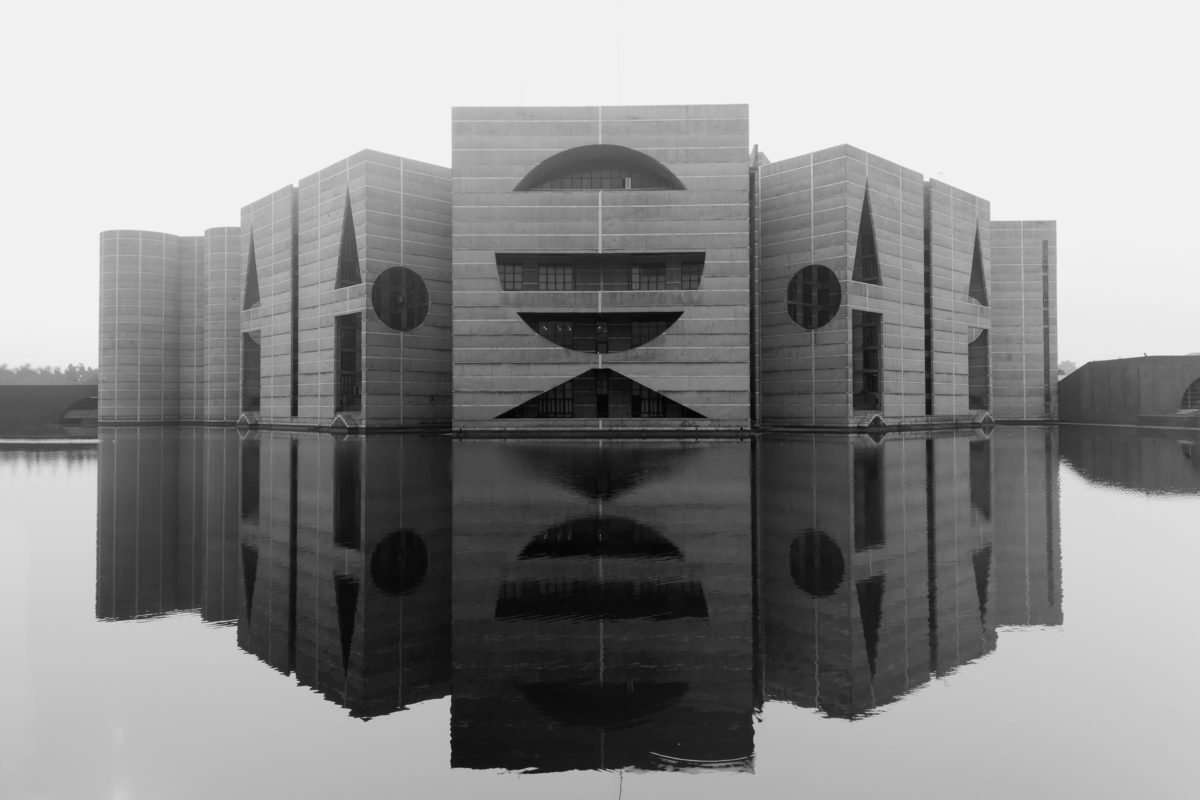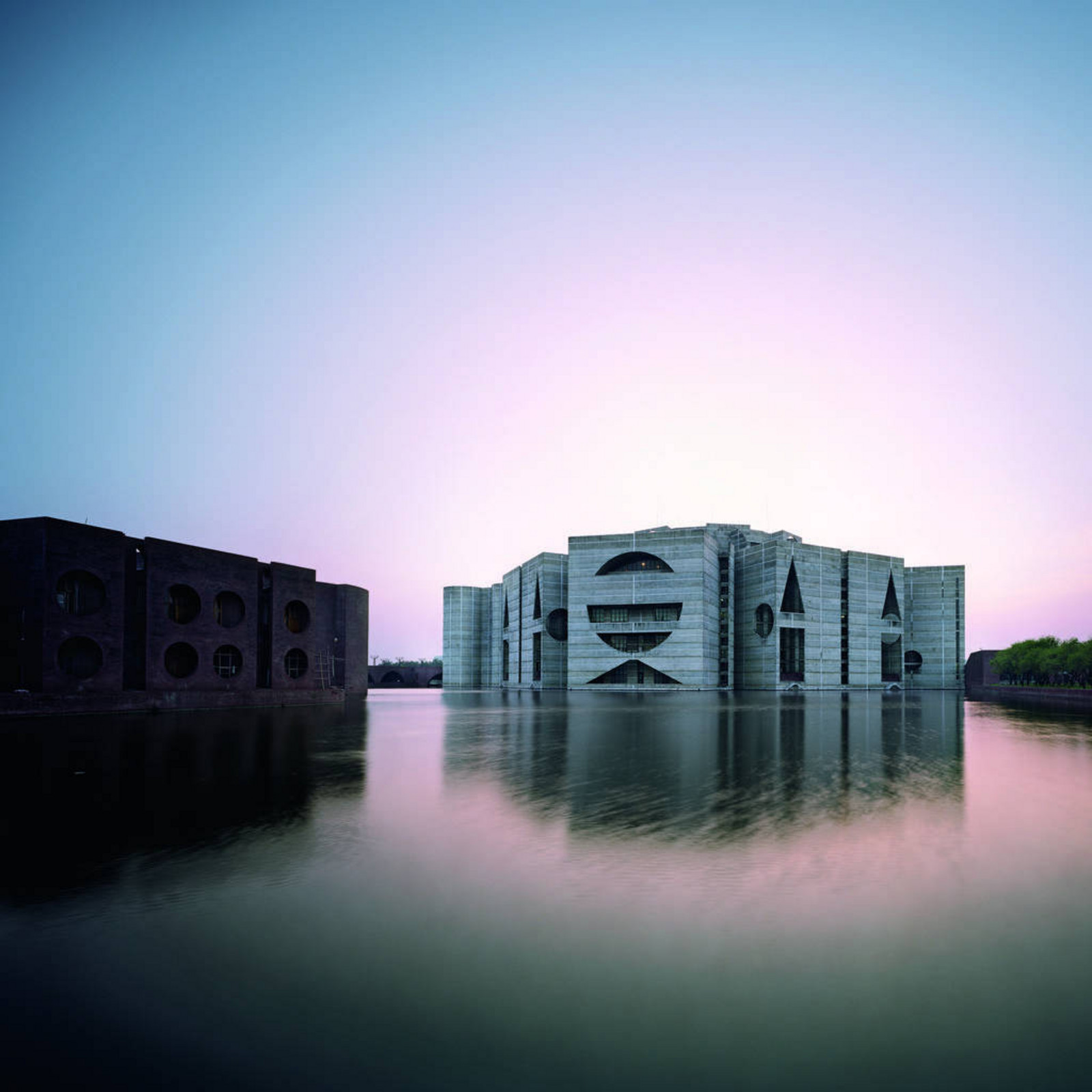
Louis Khan’s National Assembly, Dhaka, Bangladesh Louis kahn, Architecture, Architect
Brutalism Is Back. By Nikil Saval. Oct. 6, 2016. Considered Louis Kahn's greatest achievement, Dhaka's National Assembly complex, whose construction began in 1962, sits on an artificial lake.

The temples of consumption Louis Kahn's Dacca capital buildings.
Louis Kahn, National Assembly Building (Dhaka, Bangladesh), completed 1983. And thus I told you the story of this magnificent architect, of the ache that living procured him, of his family secrets and crumpled suits. As we flipped through the book, examining the buildings, I pointed out the slits and chutes, the arches and skylights, that let.
Louis Kahn The architect of complex, monumental buildings ICON Magazine
Visionary architect, expert manipulator of form and light, highly complex individual, Louis Kahn (1901-1974) is one of the most influential architects of the mid-twentieth century. He realised relatively few buildings, yet the formal restraint and emotional expressiveness of his Jonas Salk Institute, Kimbell Art Museum and the Capital Complex in Dhaka are regarded as an inspired interpretation.

Louis Kahn in Dacca Louis kahn, Brick architecture, Arch building
1. Louis Kahn's Capital Complex at Dhaka is an epic work. Next to Chandigarh it is the most important landmark to influence the architectural destiny of the region. In the Assembly Building of the Complex, major architectural streams, Roman, Renaissance, Mughal and Modern, seem to have converged - not in a synthesis but as a palimpsest.

Paul Goldberger writes on the mysticism of Louis Kahn News Archinect
The National Assembly Building in Dhaka, Bangladesh was completed after its architect Louis Kahn died, but has long been described as his greatest work. It was certainly a vast and demanding commission. For its design, Kahn diligently tied together his strong modernist philosophies with a strong sensitivity to the local culture and vernacular.

Louis Kahn biografia, características + obras
Bangladesh 1962—1982 'Spirit' and 'silence' were the code words for Louis Kahn. The various parts of the building surround the strong axis of the center. The combination of materials - concrete and marble - is highly unexpected. The monumental architecture has become a symbol of freedom and overcoming challenges.

Louis Kahn 5 opere che hanno lasciato il segno ArchitettiFreelance
History In 1962, the government of Pakistan commissioned Louis Kahn to design a building that they intended to be an extension of their parliamentary headquarters. 6 Construction halted in March 1971 when Bangladesh declared independence from Pakistan; after the two countries officially separated that December, the project became a symbol of pri.

Louis Kahn 5 opere che hanno lasciato il segno ArchitettiFreelance
As impressive as the National Assembly Building's coming of age is, Louis Kahn's design is the most intriguing aspect of the project. As mentioned before modern architecture does not bode well.

Parlamento di Dacca Louis Kahn Architecture, Louis khan, Maison
When Kahn suffered a fatal heart attack in 1974, after enduring a 27-hour trip from Dhaka to New York, Wilcots would assume the awesome task of finishing a Louis Kahn masterpiece. Advertisement. Kahn's star dimmed a bit in the years following his death, but over the last decade interest in his work has exploded.

Louis Kahn in Dacca Louis kahn, Architecture, Architect
Louis Kahn's Capitol Complex in Dhaka, Bangladesh, is an epic work in the annals of modern architecture that is still shrouded in mystery. Dhaka was a

The National Assembly Building in Dhaka Bangladesh 1962—1982 Louis Kahn
Introduction The National Assembly in Dhaka is Bangladesh's most famous modern building ( Figure 1 ). Designed by Louis Kahn, who received the commission in 1962, when the Bangladesh was East Pakistan, it was completed only in 1983, nine years after its architect's death.

Louis Kahn a Dacca
The Journey of the National Parliament House Conceived in 1959 by the government of Pakistan as an extension to their parliamentary headquarters, Louis Kahn was commissioned in 1962 to design the governmental complex. The construction process, however, was halted in March 1971 due to Bangladesh's declaration of independence from Pakistan.

Louis Kahn
Louis Isadore Kahn (born Itze-Leib Schmuilowsky; March 5 [ O.S. February 20] 1901 - March 17, 1974) was an Estonian -born American architect [2] based in Philadelphia. After working in various capacities for several firms in Philadelphia, he founded his own atelier in 1935.

National Parliament House, Dhaka, Bangladesh by Louis Kahn One of the Largest Legislative
1. Kahn and the fundamentals. Writing about Louis Kahn (1901-1974) is not a straightforward task. His formative path is selective but inclusive, characterized by harmonized oppositions of abstraction and empathy, finite and infinite or as he stressed, measurable and 'unmeasurable', continually seeking to give a tangible form of that eternal, spiritual and timeless.

Louis Kahn in Dacca
Designed by an American architect Louis Kahn, it is one of the largest government complexes in the world that conducts parliamentary functions of Bangladesh. Unlike other modernist constructions, the national assembly building reflects the Bangali Vernacular architecture.

Louis Kahn, National Assembly in Dacca, Bangladesh, India. 1962 Architecture Louis kahn
Louis Kahn in Dacca In 1975, Louis Kahn's buildings for Dacca are the starting point for a conversation between Richard Saul Wurman and Henry Wilcots, shedding light onto the great architect's process and work methods. Photography Anwar Hosain Published 08 September 2012 Location Dhaka This article was originally published in Domus 548 / July 1975